NO OTHER CHOICE (2025)
After being unemployed for several years, a man devises a unique plan to secure a new job: eliminate his competition.
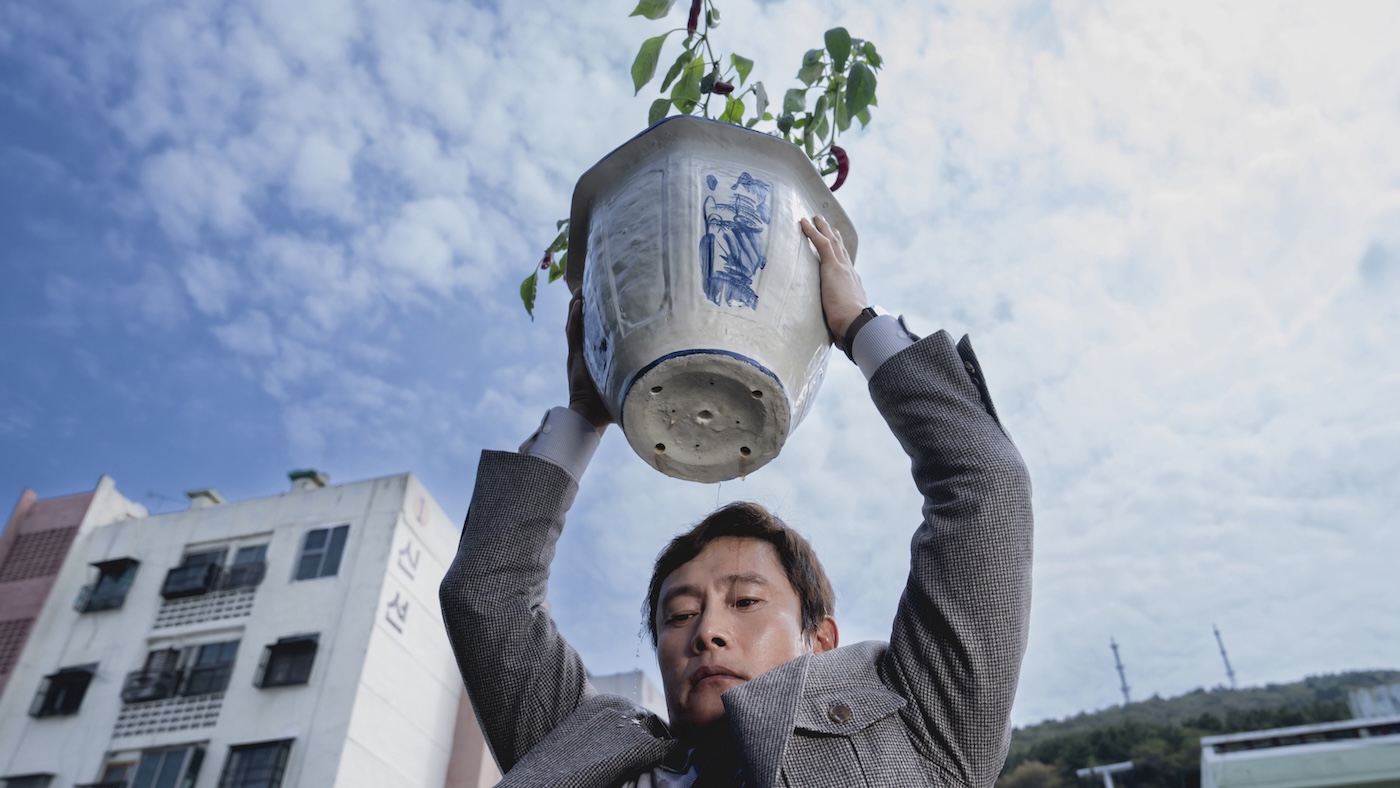
After being unemployed for several years, a man devises a unique plan to secure a new job: eliminate his competition.

Park Chan-wook’s follow-up to Decision To Leave (2022) is the bleakly brilliant and darkly hilarious No Other Choice / 어쩔수가없다. The film follows You Man-soo (Lee Byung-hun), who thinks he’s finally made it in life; in the opening scene, he sits back in his suburban home’s garden and admires what 25 years in the paper industry’s helped him and his wife Mi-ri (Son Ye-jin) achieve.
But days after this moment of bliss, life comes crashing down for Man-soo as he’s fired from his managerial role after American investors take over the business. And despite his experience and role within the company, he now has no other choice but to work his way up from the lower ranks again.
No Other Choice portrays the world of paper companies as cutthroat and high-stakes, like trading stock in New York City. Man-soo’s good at his job, but everyone else is better than him. The interviews for a replacement role are bad, his CV is ignored, and his family hates him because he’s had to cancel the Netflix account.
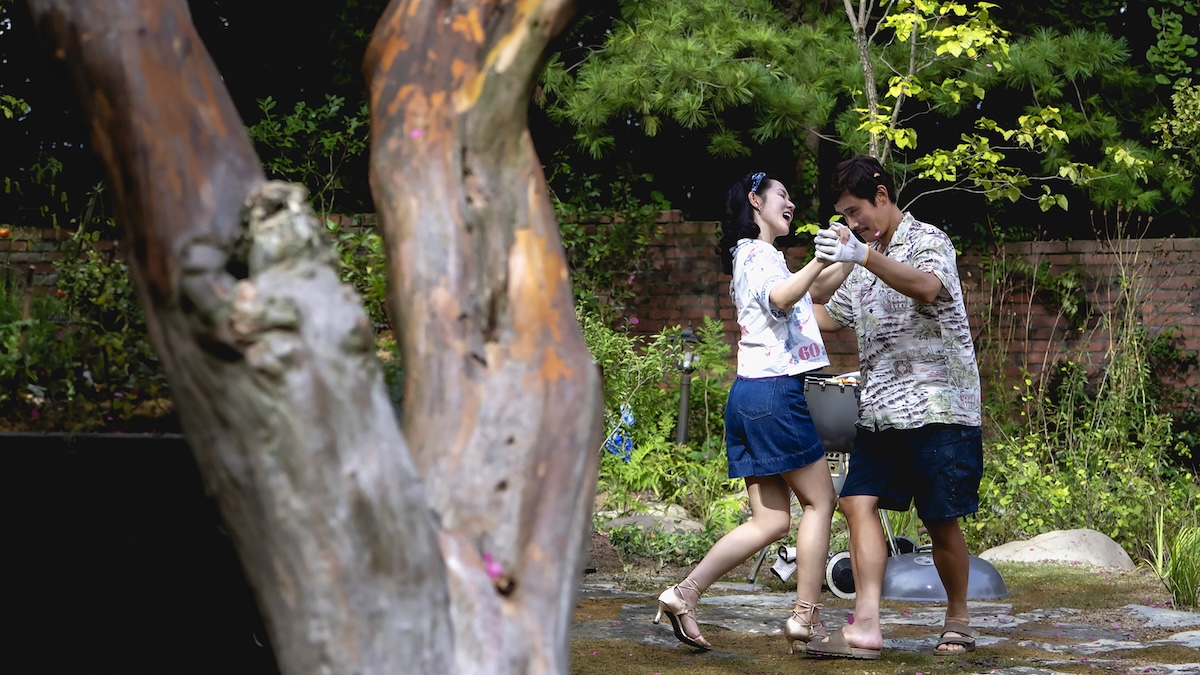
Mi-ri acts rationally, trying to get back on the career ladder as a dental hygienist, which, having children derailed, puts their beautiful house up for sale and starts scaling back their two children’s many extracurricular activities. While she’s making a grown-up decision to keep her family together, even if the scene where the dogs are taken away is heartbreaking, her husband is plotting something madcap.
Down and out, Man-soo realises he must do something drastic to get his life back on track. He suspects that if just three of his former colleagues were removed from the picture, he would have a better chance at being hired. So, he publishes an ad for a fake new company to try to lure in his competition. Park’s writing leans enough into black comedy to make the farcical elements, like this roll-call for staff, believable enough to buy into.
No Other Choice spends the first act as a satire on life as a jobseeker, amping up the experience of feeling like you can’t win. Everything Man-soo does is wrong, as the paper man bulldozes his way from one bad interview to another. After losing his job, he’s forced to attend counselling sessions where a corporate woman hilariously teaches struggling unemployed men to tap their cheek to minimise stress. The writing in the opening act forces the audience to be on Man-soo’s side, making him sympathetic even during some of his later behaviour.
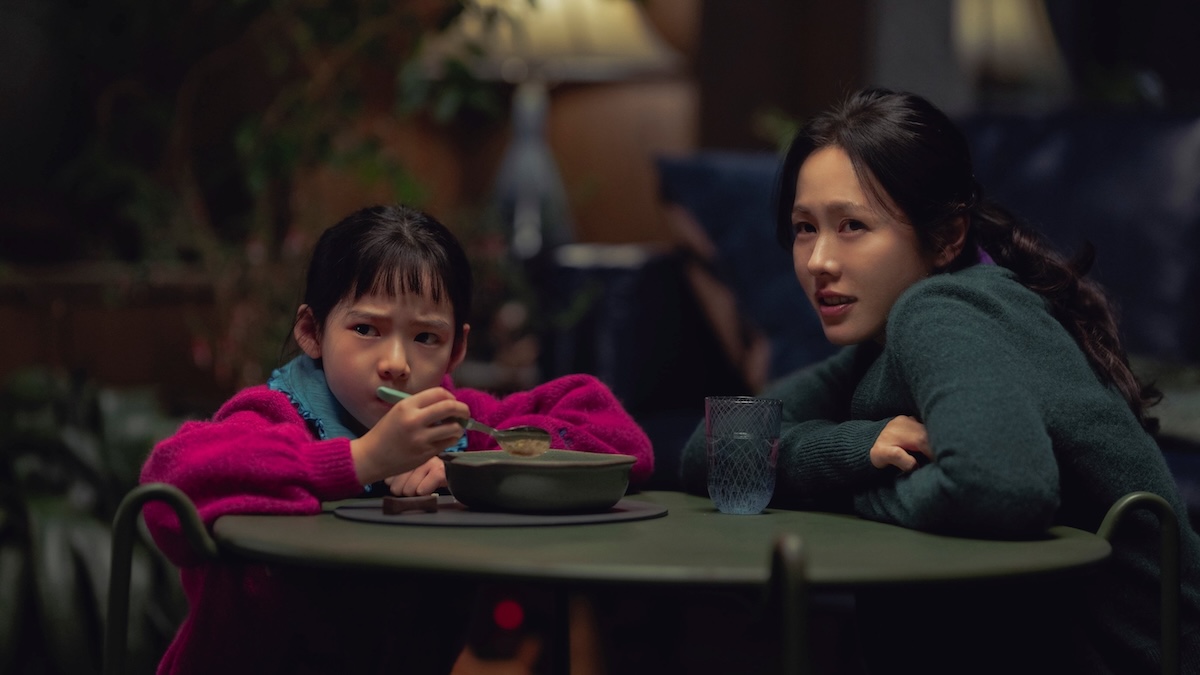
The second act turns into a vengeance action-comedy as the man with no killer instinct must kill his competitors. He eloquently devises a plan to bait the competition but has no idea what to do next. The film is at its best when indulging in these pulpy faux-vengeance scenes, which see hapless Man-soo make numerous poor decisions when it comes to assassinating his friends and colleagues.
The film’s narrative is built around one scene in the middle where a woodland stakeout turns into a farce after Man-soo gets bitten by a snake. It could be a scene from a Coen Brothers movie, and the way it builds gets more and more ridiculous. Park’s a master at balancing tone, and it’s never clearer than during a three-way brawl set to contrasting peppy pop music. These scenes are two of the many which deliver the perfect mix of bloody violence, farcical humour, and tragicomedy.
By the third act, No Other Choice gets stuck in a rhythm and becomes too familiar. The gag is that you don’t expect a polite and pathetic man like Man-soo to go through with the murders, which makes the first killing so thrilling and shocking. This loses its shock-value, and the writing becomes more and more obvious. The writing never tries a new angle or recontextualises Man-soo’s actions. Instead of minimising repetition, the film just adds new props and songsto keep interest.
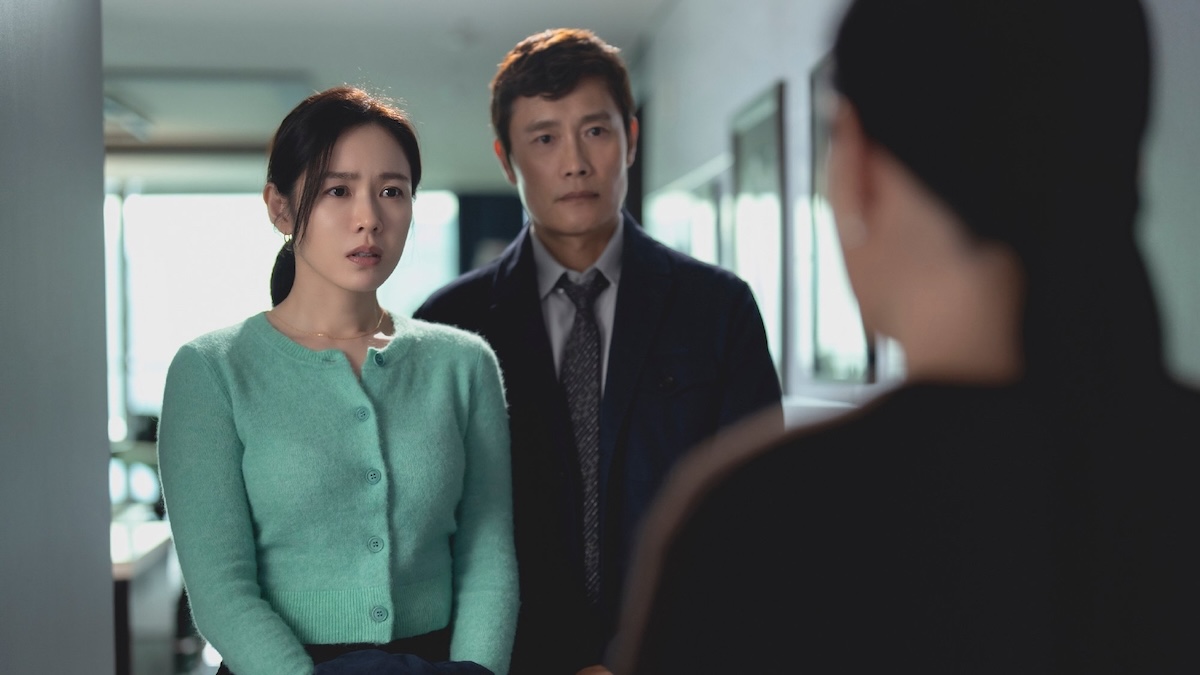
The title No Other Choice sums up all the reasons behind the characters’ behaviour. The Americans have no other choice but to lay him off, the company claims they had no other choice but to replace personnel with AI, and Man-soo feels he has no other choice but to start attempting to murder colleagues. The irony is that every single character in the film has another choice but just doesn’t want to make it.
The film has been compared to Bong Joon Ho’s Parasite (2019), but No Other Choice is less about poverty and more about the middle classes trying to cling on to their status. The couple has become accustomed to the finer things in life, and they’d do anything to hold onto this status. Their daughter plays the cello, their wife plays tennis in an upmarket club, and Man-soo likes to tend his bonsai trees in his stunning greenhouse. This isn’t a film about staying out of homelessness; it’s a film about maintaining the nice life the family has become accustomed to.
Based on Donald Westlake’s 1997 horror novel The Ax, and co-written by Don McKellar, No Other Choice’s plot feels ripped from the headlines. It covers the lack of worker protection, especially at the hands of A.I., the lack of compensation, and the need to keep up the appearance of being middle class. The film is set in Korea, but tackles universal issues felt by the entire world. Despite the tick-box exercise in covering the plight of a modern worker, all these topics are addressed with a light touch.
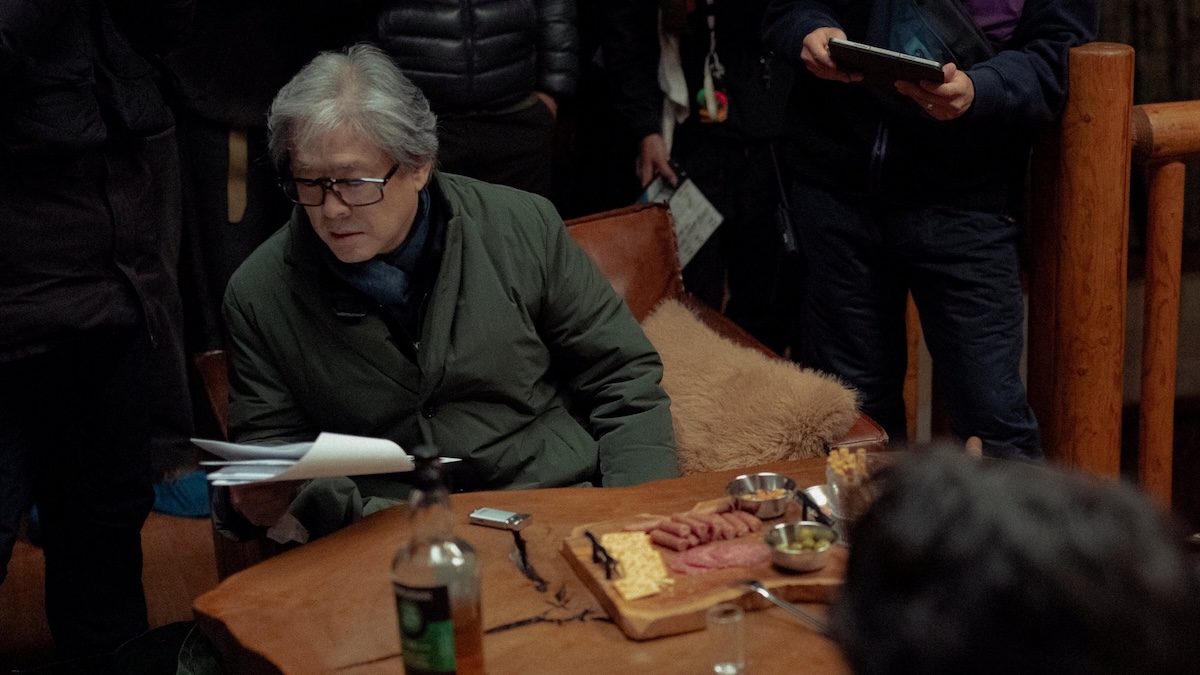
No Other Choice seamlessly moves from a sharp satire about the struggling job industry to a dark comedy about murdering the competition to get your career back on track. The use of comedy does mean the characters and their emotions are kept at arm’s length. No matter how funny the film gets, it never loses its tragic desperation.
Lee Byung-hun’s (Squid Game) performance is the glue that holds No Other Choice together. As unhinged as his behaviour becomes, he never stops being sympathetic. The level of pathetic desperation is the perfect amount to help you believe he would kill, but would feel really bad about it. Son Ye-jin is effective in her supporting role as his wife, knowing how to annoy with her over-peppy attitude and terminal positivity.
With a runtime spanning over two hours, No Other Choice does outstay its welcome. It reaches a point where it feels like the plot could wrap up, but instead adds a new subplot. There are too many plots going on, with some becoming relevant to the overarching themes and others acting solely as red herrings. It would be delightful to spend time with the couple’s two children and all their middle-class hobbies, but at a 139-minute runtime, your patience may run too thin to enjoy another cello-playing scene.
However, despite the long runtime, it still feels like there’s so much more of this world left for No Other Choice to investigate. The characters throw out information about their past that’s begging to be unpacked. And too many side-plots feel like they should have a bigger role in proceedings, instead merely running in the background as if another film’s happening to other characters in this world.
SOUTH KOREA | 2025 | 139 MINUTES | 2.35:1 | COLOUR | KOREAN ENGLISH

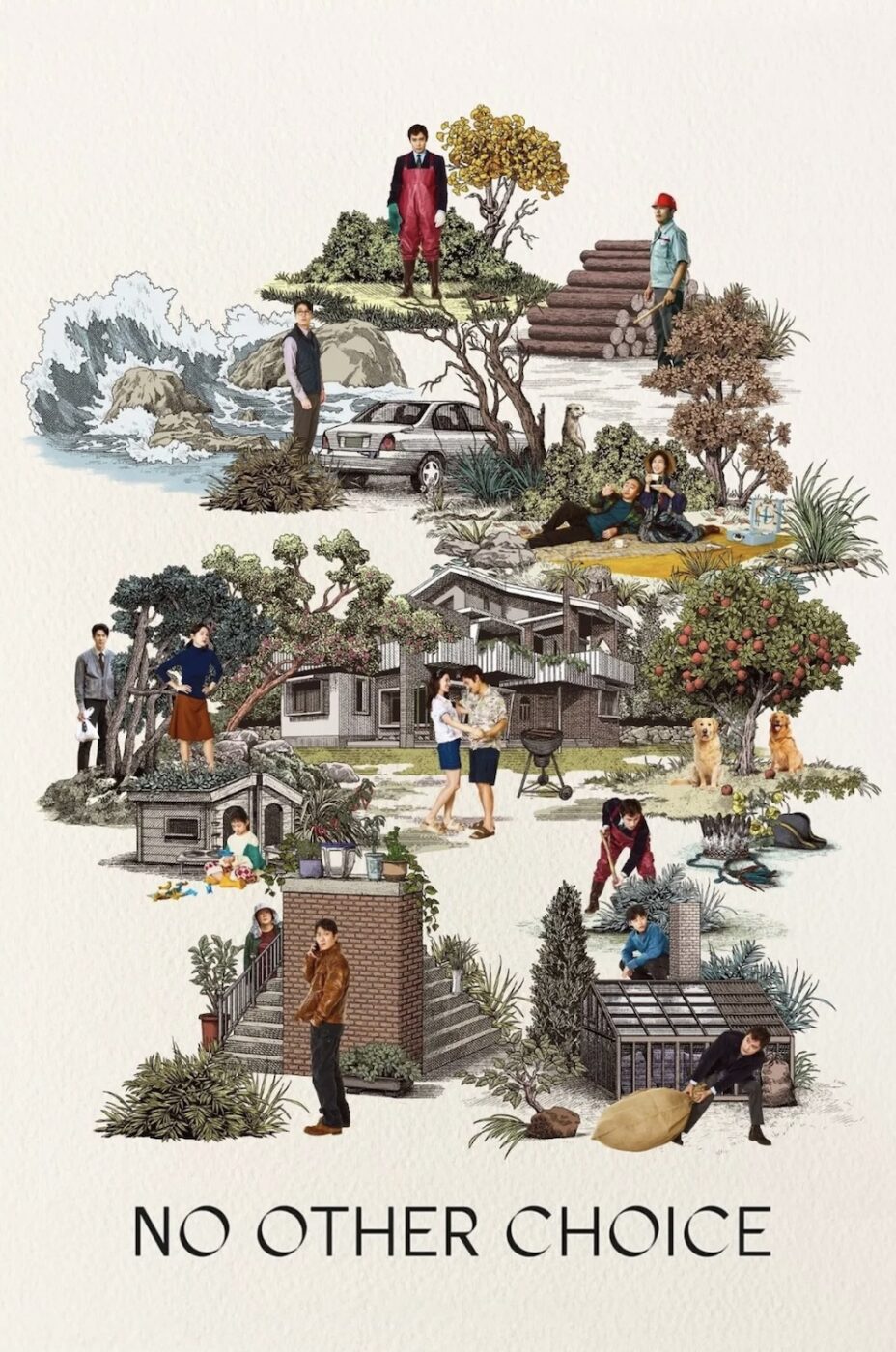
director: Park Chan-wook.
writers: Park Chan-wook, Don McKellar, Lee Kyoung-mi & Lee Ja-hye (based on the novel ‘The Ax’ by Donald Westlake).
starring: Lee Byung-hun, Son Ye-jin, Park Hee-soon, Lee Sung-min, Yeom Hye-ran & Cha Seung-won.
